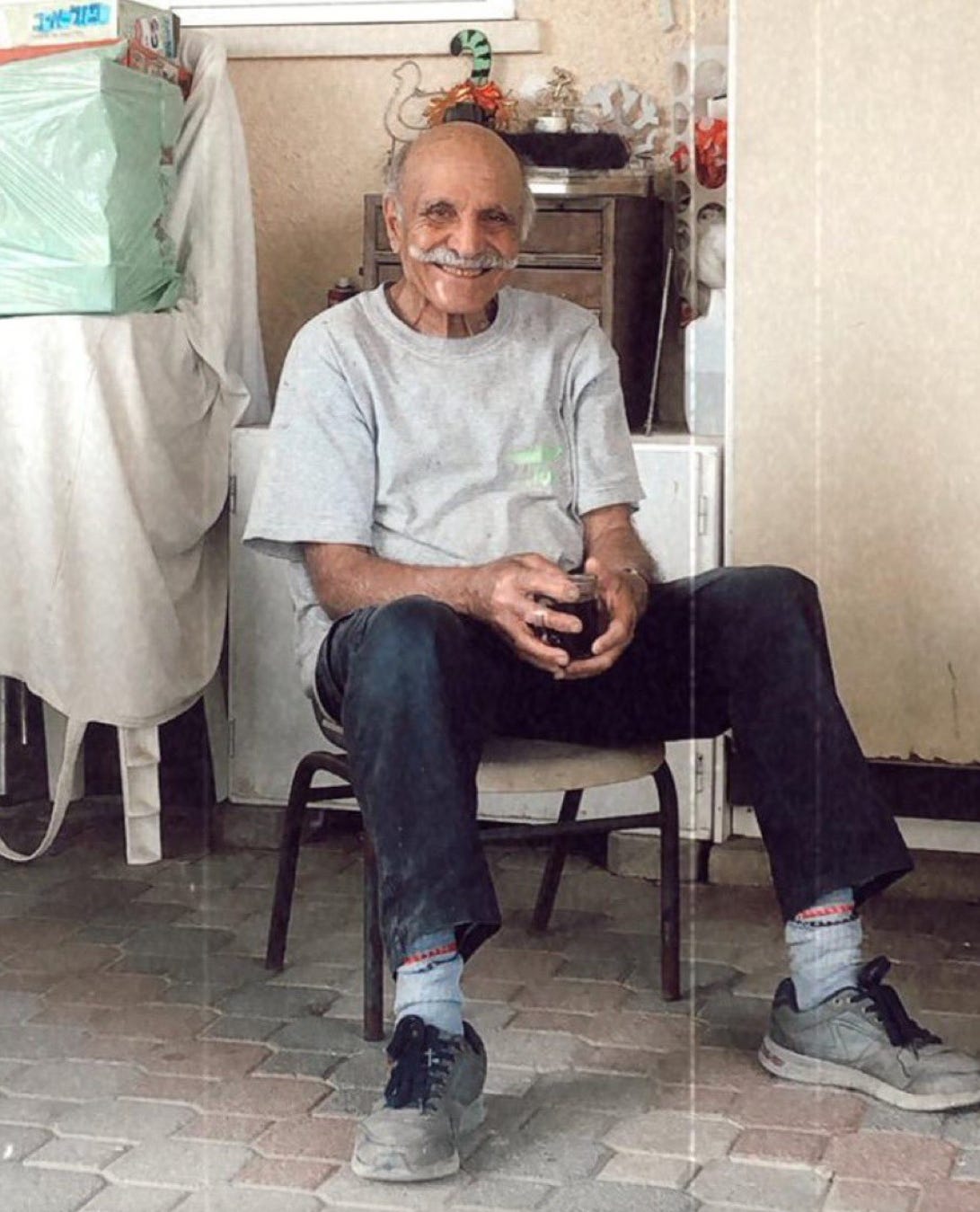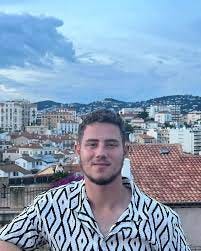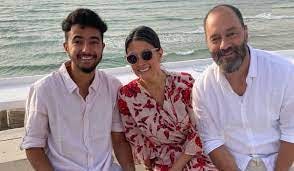A Letter to Ben Platt
Dear Ben Platt (and Jewish celebrities like him…),
You are one of my favorite artists, particularly for your portrayal of Leo Frank in Parade. You brilliantly captured his neurotic Jewish personality, his insistent use of Yiddish phrases like “meshuggeneh,” his refusal to assimilate into wealthy southern society because he didn’t want to be anything other than the brainy Jew from the urban shtetl. Leo never wanted to trade his Brooklyn for the genteel South. He didn’t want to adopt a southern accent to please his new neighbors in Atlanta, to make them feel comfortable. No, Leo’s message in Parade was clear: assimilation is not every Jew’s dream- and it shouldn’t be. Your performance embraced the archetypal Jewish identity that has answered firmly for years that the aspiration to pass as WASPY, or at least to not appear “stereotypically Jewish”, is hardly the universal dream of modern Jews. For many of us, whether we’re in Jerusalem or London, New York, Melbourne, Paris or Buenos Aires, we’re Jews first.
Last May, my younger brother - also called Ben, a fellow curly haired Jewish musician who is one of the few Jewish students at his arts school- performed Parade’s “How Can I Call This Home?” for his annual school concert. It was an act of musical defiance and Jewish resilience from a kid who had felt alienated by his “woke” classmates for his Zionism throughout high school. Just like you, as the first Jewish actor to play Leo Frank on Broadway, showed Frank’s isolation as a Jew living in a deeply anti-Semitic Jim Crow South, Ben (Goodman) portrayed how many young Zionist Jews feel like they can’t call liberal spaces home now, even in New York, because they aren’t “the right type of Jew.”
You posted a photo on Instagram in August of a Polaroid selfie in Leo Frank costume - messy curls, spectacles, and suspenders- next to a Jewish star necklace. You spoke about honoring your Jewish heritage by telling this eternal story of Jewish oppression. You vowed to never forget Frank’s memory and pledged to its mission fighting anti-Semitism. But the legacy of Leo Frank is now more crucial than ever, after the October 7th Massacres in Israel. While I appreciate that at the very beginning of the war you denounced Hamas and anyone justifying “antisemitism and the extermination of Jews” on the basis of “freedom and human rights in Palestine,” this is not enough to speak out against the highest number of Jewish families, babies, and elderly murdered since the Holocaust. It does not shake the world’s conscience or even raise any awareness about the Jewish captives in Hamas tunnels for over 100 days, deprived of oxygen, sunlight and all human rights. You have not used your voice to raise awareness for the captives and victims who have been entirely robbed of their voice on October 7th, in the kind of anti-Semitic inferno you swore to combat.
Leo Frank’s legacy is the legacy of the Jewish men (and women) in Hamas captivity. Just like Frank is the story of “Jewish oppression” (in your words), so is Alex Dancyg. He is 75 years old and on October 7th, with his work boots still muddy outside his door after a morning in the fields, he was torn away from his family. Alex knows anti-Semitic persecution: he was born in Warsaw in 1948, to parents and a sister who survived the Holocaust thanks to their Polish nanny. They hid in her apartment throughout the entire war. But Alex also represents Jewish resilience and redemption. At age nine, Alex made Aliyah. He fell in love with leftist socialism by joining the Hashomer Hatzair youth movement, and after finishing his army service, Alex moved to the luscious Kibbutz Nir Oz. He became both an irrigation engineer and a historian. Although he embraced his Israeli identity and the kibbutz ethos (he loved to walk barefoot in the fields), he always kept his motherland close to his heart, like in the Yom Kippur War when in a bunker he listened on the radio to Poland tie with England in soccer, earning them a place at the World Cup Final. He clapped and shouted with such audible joy that the other troops thought the war had just been won. Dancyg ultimately wrote five guidebooks about Poland and was awarded the Polish President’s Silver Cross of Merit for his groundbreaking work on Polish-Jewish dialogue. Having fled communist Poland as an impressionable child, Alex had many reasons to hate, but instead he always advocated for Jews to approach Poland in terms of “dialogue rather than stereotype”. He would always remind his students that not only was Polish culture and history fascinating, his family had also been saved by close Polish friends, by the kindness of neighbors and conationals.
Alex is a man of words, with thousands of students from Jerusalem to Warsaw who adore him. As his son Yuval has said in interviews, “My father’s days are numbered…to begin a conversation with him, it never ends.” But he is terrified of captivity’s effects on Alex’s mental health, his intellectual capability, and his general desire to talk as the months pass. Nili Margalit, a nurse who was released from captivity in late November, reported that she saw Alex giving lectures to fellow hostages, to which his son in law quipped: “Well, at least he now has a captive audience.” Alex is an exceptional man, a proud Polish Jew and an equally proud kibbutznik, and the world should be enraged by the hell he has been going through for four months.
Oded Lifshitz, also from Nir Oz, has devoted his entire career to the peace movement. A 84 year old veteran of the kibbutz movement, having personally founded Nir Oz in 1955, Oded was a journalist for decades. In 1972, he legally defended Bedouins who were kicked out by the IDF in the Sinai, and he was one of the first journalists to cover the Sabra and Shatila Massacre in 1982. His daughter said he fought his entire life for the vision of two peoples living side by side, learning from each other. Nir Oz was Oded’s haven, truly the utopia he had dreamed of making for liberal minded Zionists. He loved bringing his grandchildren on his shoulders to see the kibbutz’s cows. He loved living in the Gaza Strip for its diversity, working as an advocate for Bedouin villages on the border for decades. He visited Gaza frequently before the disengagement in 2007. Every week he and his wife Yocheved picked up sick Gazan children from the Erez border crossing to bring them to specialized hospitals in Tel Aviv, a two hour drive there and back, a particularly arduous journey as both Oded and Yocheved were sick themselves.
Despite his age, Oded has always been a youthful optimist with a staunch passion for authentic, sustainable justice. His grandson describes him simply as “the greatest peace activist in the world.” Yocheved is as fiercely devoted and loyal of a partner as Lucille Frank was to her Leo. Since her release in late October and subsequent continuous recovery, Yocheved has waged a passionate campaign for Oded, placing at its center his lifelong fight for peace and equality. Yocheved is a photographer and for decades took photos of all his struggles, especially his defense of Bedouin villages. She captured in her photography his greatest missions.
This was the second massacre Shlomo Mansour personally witnessed. At age 86, Shlomo is the oldest hostage. He was born in Iraq and survived the Farhud Massacre of 1941 as a toddler. The Farhud was a two day pogrom against Baghdad Jewry inspired by pro-Nazi Muslim rioters, killing 175 Jews, injuring 1,000, plundering and effectively destroying 900 Jewish homes. Many Jewish girls were raped and children maimed in front of their helpless parents. This effectively ended the Jewish Baghdad Shlomo’s family called home. They made Aliyah to raise Shlomo in a country where he would never have to fear any consequences for espousing a proudly Zionist Jewish identity. For decades, Shlomo was indeed able to rebuild, to live his life as a Jewish man without the fear of another Farhud in his shadow. His beloved Kibbutz Kissufim, like Alex and Oded’s Nir Oz, was a small piece of the desert Shlomo called home, where you don’t lock your doors, you greet neighbors who are more like family as you pass them by on your bike, and you give as much as you can provide and take what you need, because the kibbutz in essence is all about taking care of each other.
Shlomo is everyone’s “Saba” in Kissufim, always taking care of everyone’s needs as the kibbutz’s trusted carpenter. He managed the chicken coop, the delight of the kibbutz’s children, for years. He and his wife Mazal are a love story for the ages; they were supposed to celebrate sixty years together a few months ago but Shlomo has been in captivity- it was the first year in six decades that Mazal didn’t receive a handwritten bracha from Shlomo. They are the loving parents of five children and fifteen grandchildren. On October 7th, Mazal hid in the bathroom while the terrorists found Shlomo in the safe room, handcuffed him, and brought him to Gaza. Mazal managed to survive by fleeing to her neighbor’s home. The entire Kissufim community are waiting for their gifted craftsman to return home, to see him tending to his beautiful garden or fixing their kids’ toys once again.
Leo Frank’s background tells the classic American Jewish experience of the 20th-century, having left the Eastern European shtetl for its Brooklyn equivalent. Alex tells its Zionist counterpart, leaving Warsaw for Israel, living out his Jewish identity in the fields of Nir Oz. Shlomo tells the story of Eastern Jewry, fleeing a thriving Jewish culture and once harmonious neighbor relations after the Arab world’s anti-Zionist hatred ended all of that. But both the Baghdad Israeli and the Brooklyn Yid are part of the same Jewish tapestry and urgent mission of young Jews like ourselves to stand up for today.
There are a few more Jewish male hostages whose life stories I want to share with you in this letter that don’t reflect Leo Frank’s story but rather yours, as Ben Platt. Speaking out against their torture isn’t your mission as someone who played Frank but rather as a 30 year old Jewish man. An article on Jewish Unpacked boasts that you attended Camp Ramah in California, which you fondly remember as the first time you could decide your Jewish identity for yourself. You starred, naturally, in all of the camp musicals, all of which were delivered solely in Hebrew. Omer Neutra and Hersh Goldberg-Polin also went to Ramah camps. Omer grew up in Long Island, attending a Conservative synagogue like your family, as well as Solomon Shechter and the Conservative youth movement USY. Like you, Omer threw himself into camp, growing up in the Zionist Young Judea camp and then working for several summers on the swim staff at Ramah Nyack. His time at camp inspired him to immerse himself in an Israeli gap year program and subsequently draft to the IDF before attending Binghamton University next fall. No parents should have to beg world politicians to “allow” their kid the chance to see out his dream of attending university if he can only be released from captivity first. Omer was an honors student, a sports captain, a natural leader who wanted to use his talents and skills not just in youth movement, AIPAC trips, soccer or in pursuing a pre-med track but rather also protecting Israel. Omer believed in a larger purpose in life, in altruistic service. Listen to the video of his mother Orna, an archetypal Jewish mother from Plainvillege, New York, screaming across the Gaza border to Omer, deep in the tunnels in an unknown location, reminding him that Ima loves him, that she and Abba are doing everything they can to bring him home.
Hersh was at the Supernova Music Festival when his arm was blown off, his best friend murdered after saving seven lives, and he was kidnapped to Gaza. Hersh was born in California, like you, and is also obsessed with music. Before the iconic Nova festival, an epic celebration of peace, love, and trance music, Hersh took a nine week trek across six European countries to attend a series of raves in each stop. He has been obsessed with traveling the world since he was a young child when he would memorize names of capital cities and mountains on global atlases. Shortly before October 7th he had just bought a ticket to India to start the two year long world trip he had dreamt of for so long. As a Jewish celebrity who has worn a Star of David necklace at the Met Gala and has performed Kaddish on the Broadway stage, you should be using your voice, your platform of followers and connections, to speak out against the horrors Hersh experienced at a music peace festival, the type I’m sure you’ve attended numerous times with friends in your field and never had to worry about them being killed, injured, raped, captured or generally traumatized for the rest of their lives. You know that a music festival is no place for such evil and barbarity. You should also protest the music industry’s current (deafening) silence.
I know this is a lot of information for a lot of people but this is the reality of the 136 people still held in captivity since October’s Black Saturday. Each person is an entire world, one full of stories, loved ones, passions, and aspirations. As I described here, these stories really aren’t so dissimilar to your own. You have the responsibility to amplify them. Your Jewish legacy and struggle, Ben, cannot just include or fight for Leo. It must honor and advocate for Alex, Oded, Shlomo. As a Camp Ramah alum and current Jewish singing sensation, you must also fight for Omer and Hersh so that they too can pursue their dreams, or at least so the world can see it’s a travesty that they’ve been deprived of the chance.











